Board of Directors Election Results | 2024 - 2026
The election results for the 2024-2026 Board of Directors are in! We are so grateful for all of our candidates - we could not do this work without you! Congratulations to all our new board members. Get to know your new incoming board members below as well as the 2023-2024 current board members.
Crystal Starr-Howe, Treasurer
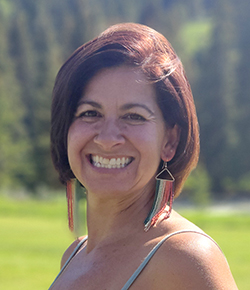
I believe that a comprehensive and engaging TK-12 science education should be available to all students. Science literacy is about students finding wonder in the world they live in and exploring that world to the full extent of their curiosity. Students who graduate from TK-12 with a science literate mindset are able to question the world around them, think critically about the news they read, and solve problems in their homes. Teachers should inspire students to ask questions and gather data to better explain their worlds. To do this, teachers need local and statewide support to grow their practice.
I want CASE to be able to support formal and informal educators across the state to better their instructional practice, feel connected to a larger network of teachers, and support students to engage in high quality science experiences in their classrooms. I believe CASE can fulfill its mission of science education advocacy, communication, and collaboration through regional events, online learning experiences, and the annual conference for science education. I want CASE to grow its membership and to be the first source that California science educators turn to when trying to build their toolbelt to deliver high-quality science instruction.
Heather Wygant
Region 2 Director
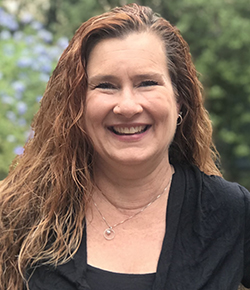
I believe science education is important for all students, as we all need to have a basic understanding of the planet we live on. As a science teacher, I strive to bring real world applications of science into the classroom to show the students the relevance of what they are learning. Student-centered interactive learning is the most effective at creating young scientists and engineers. Science education is vital to be a well-rounded citizen who can make well-informed and intelligent decisions. Students also need science to become productive citizens who are well prepared for the challenges they will face in an ever-changing world. I believe that all students can do science and want to encourage groups that are typically underrepresented in the sciences to pursue science-based careers.
I am in complete agreement with the CASE vision statement and purposes. I am especially adamant about the importance of promoting high-quality, equitable science education for all of our students K-12. Many elementary students receive spotty science education, and high schoolers do not have access to biology, chemistry, physics, and earth sciences in their high school years. Advocating for equitable science education for all our students is a priority, and something that I have worked toward since becoming an educator. I envision my role at CASE to support the flow of information from state level to teachers, and teacher learning that enhances student learning.
Amanda Chiatovich-Cloutier
Region 4 Director
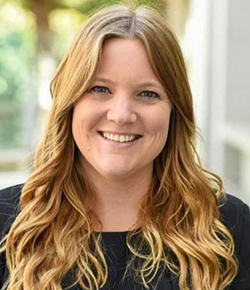
My Science Education Philosophy is founded on being a facilitator of learning and not a traditional teacher. To maintain such a claim, I constantly want to be learning the most up-to-date strategies and concepts that could benefit my classroom and students. Our classroom is a safe, respectful, and responsible atmosphere where our goal is hands-on learning and meeting the needs of all of our students. This only leads to a love of learning and a spark in the world of science - a field that spans all other curricular content.
My vision for CASE would be to expand our presence in classrooms, allowing teachers to utilize our resources within their work environments. I would also like to continue our involvement throughout our state and its communities. This creates professional developments relevant to our standards, new legislation, and community needs. As well as community outreaches and environmental interactions and continuing recognitions and acknowledgments of cultural and influential factors that leave everlasting marks on the science community.
Tara Sikorski
High School Director
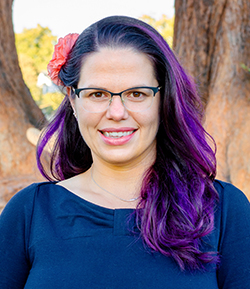
Tara believes that every student deserves a high-quality science education that is both relevant to their lives and supports the development of skills that will help them thrive in a changing world. Science teaching and learning is an active and investigative process of unearthing the vast knowledge that students bring into the formal learning space and then leveraging that knowledge to build scientific skills and conceptual understanding of how the natural world works. When students do not receive the high-quality science education that rightfully owed to them, we fail to equip them with the skills and knowledge to participate fully as change agents within their communities.
When fully accessed, CASE can play that pivotal role in supporting high-quality, equitable science education. Tara knows firsthand the impact of CASE on educator identity, teaching practice, and development as a science teacher leader. The power of CASE rests in relationships that are cultivated among members and the influence of teacher leaders within the CASE community to elevate others within the community. She would love to see CASE membership grow and expand to have a wider reach throughout the state because all TK-12+ educators deserve a supportive community that promotes their development both personally and professionally.
Megan Bettis
4 Year College Director
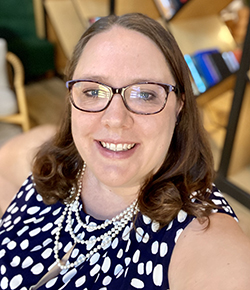
One of the statements I have heard over the course of my career as an educator is "My students can't do that." Usually it's been in reference to engaging students in productive talk or project based learning opportunities. I believe peer-to-peer talk and authentic experiences are key to engaging students in sensemaking of complex scientific topics. It has been my goal as a teacher educator to influence the pre- and in-service teachers I work with so that they understand that all students, regardless of their background, are capable of success with pedagogical strategies that push for collaboration and connect students to the curriculum.
Professional organizations like CASE provide opportunities for learning, networking, and leadership. I became a member of CSTA/CASE as a pre-service teacher and have grown with the organization. Over the years CASE has provided opportunities for me to deepen and expand my pedagogical knowledge, while also providing opportunities to engage with the broader science community. These are important opportunities for both new and continuing educators to have. In the future I envision CASE widening our reach to more out-of-school time and informal science educators, as well as connecting with undergraduate students who are considering a career in science education.
